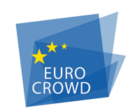To gain insights into how crowdfunding platforms under the European Crowdfunding Service Provider Regulation (ECSPR) generate revenue, EUROCROWD reviewed publicly available, self-reported data from 44 ECSPR-licensed platforms listed by the European Securities and Markets Authority (ESMA) as of December 2023. This analysis focuses exclusively on platforms that charge fees as a percentage of capital or transaction costs, excluding fixed-fee models due to insufficient data availability. The findings provide a preliminary understanding of fee structures and business models within this emerging regulatory framework.
Fees Charged to Project Owners:
Platforms primarily charge project owners fees for the inclusion of a project and successful fundraising closure. The average fees applied are:
- Inclusion Fees: 5.8% of capital raised.
- Closure Fees: 3.95% of capital raised.
These fees are typically earned only upon the successful completion of fundraising campaigns. Loan-based crowdfunding platforms generally do not charge inclusion fees, whereas investment-based platforms do.
Fees Charged to Investors:
Platforms also charge fees to investors, often related to returns on investment or administrative services. The average fees applied are:
- Administrative Fees: 2.7% of transaction costs (recurring annually in most cases).
- Return on Investment Fees: 7.5% of returned capital (charged as a one-time fee).
Investment-based crowdfunding platforms tend to charge higher fees to investors compared to loan-based platforms.
Distribution of Fee Structures
- Project Owners: 50% of all fees in the data sample were directed to project owners, either for project inclusion or successful fundraising closure.
- Investors: 32% of fees targeted investors, mainly for operational, management, or account maintenance costs.
- Mixed Models: 16% of platforms charged fees to both project owners and investors.
This distribution demonstrates that most platforms diversify their revenue streams, tailoring fee structures to their specific service offerings and customer base.
Implications for Cost of Capital
The analysis indicates that the average total cost of capital for project owners, including all applicable fees, is below 10% of capital raised. This aligns with expectations for crowdfunding platforms when compared to other capital market solutions. However, variations in fee structures and transparency across platforms make it challenging to generalize these costs at an industry level.
Market Scale and Revenue Projections
EUROCROWD estimates the total deal value under ECSPR in 2023 to exceed €1 billion. Given average fee levels, this suggests that platforms collectively generated over €100 million in revenue, with uneven distribution due to licensing timelines and market dynamics. Many platforms only received their ECSPR licenses in the latter half of 2023, limiting their operational capacity during the year.
For 2024, deal volumes and values are expected to grow, though fee structures are unlikely to change significantly until platforms achieve greater efficiencies of scale. Compliance costs and regulatory pressures will likely drive further market consolidation.
Challenges in Transparency and Regional Disparities
Transparency around fee structures remains a critical issue, with many platforms not fully disclosing their revenue models. This lack of clarity hinders the ability to assess the true cost of capital for project owners and investors.
In Germany, for example, regulatory arbitrage has emerged due to the Kleinanlegerschutzgesetz (Small Investors Protection Act), which offers a more lenient regulatory framework compared to ECSPR. This has resulted in only three platforms being licensed under ECSPR in Germany as of February 2024, while the majority continue to operate within the unregulated grey capital market. This disparity raises concerns about investor protection and market professionalism.
Outlook for 2024 and Beyond
As the ECSPR market matures, EUROCROWD anticipates that:
- Fee Structures Will Stabilize: Platforms will refine their revenue models as they scale operations and adapt to competitive pressures.
- Market Consolidation Will Increase: Compliance costs and professionalization will drive weaker platforms out of the market, favoring larger, more transparent operators.
- Regulatory Evolution Will Impact Costs: The introduction of additional regulations may influence fee structures and further reshape the competitive landscape.
EUROCROWD remains committed to supporting the development of a transparent and efficient crowdfunding ecosystem under ECSPR.
Source: EUROCROWD, February 2024



